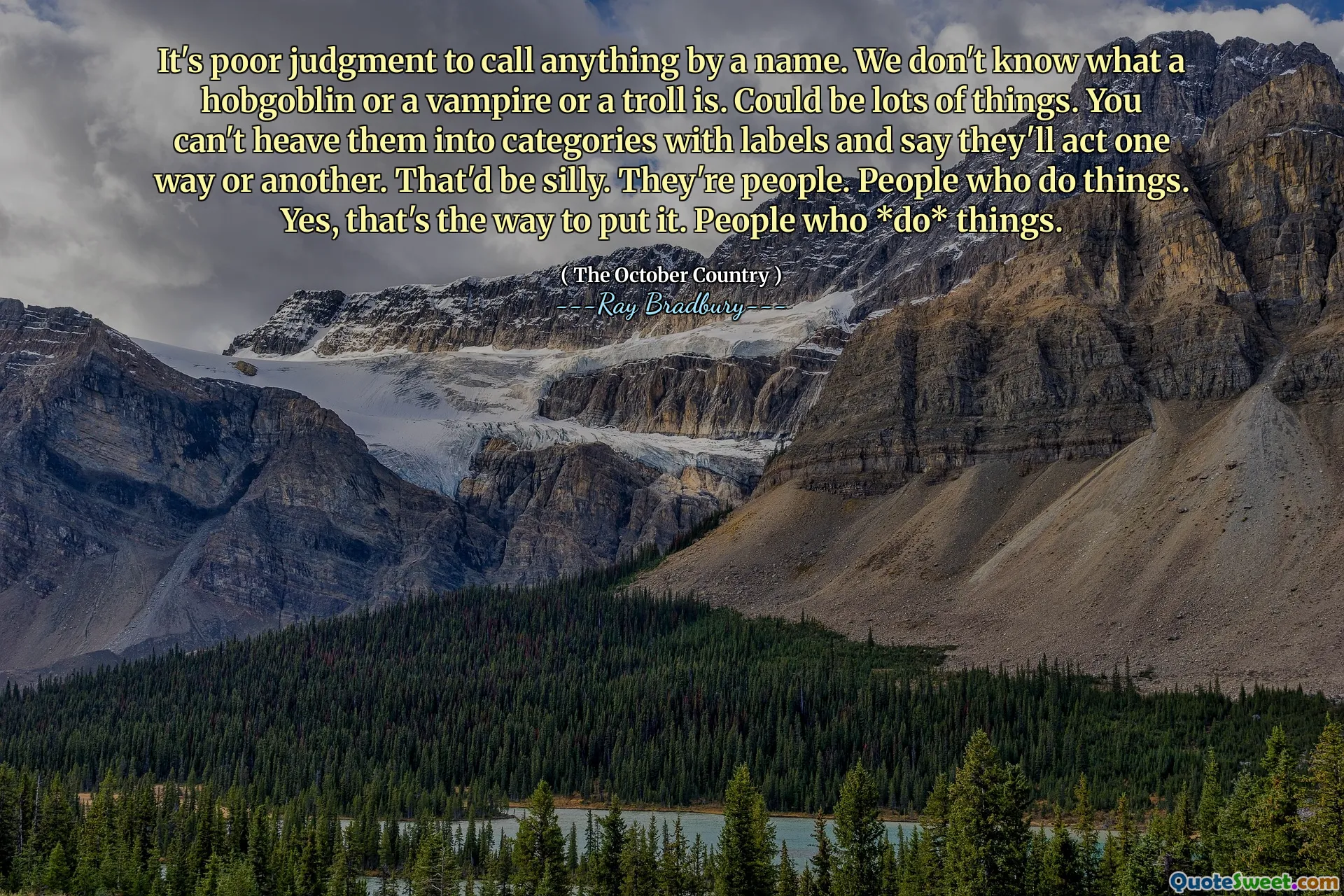
It's poor judgment to call anything by a name. We don't know what a hobgoblin or a vampire or a troll is. Could be lots of things. You can't heave them into categories with labels and say they'll act one way or another. That'd be silly. They're people. People who do things. Yes, that's the way to put it. People who *do* things.
This quote emphasizes the importance of recognizing the complexity and individuality behind labels and stereotypes. Often, society tends to categorize beings—whether real or mythical—into fixed types based on superficial characteristics or folklore. However, such categorization simplifies reality and can distort our understanding of both others and ourselves. The speaker advocates for a more nuanced viewpoint, suggesting that entities like hobgoblins, vampires, or trolls shouldn’t be dismissed or pigeonholed simply because of their labels. Instead, they are beings—possibly metaphorical for people or behaviors—that are best understood by focusing on their actions rather than preconceived categories. Such perspective reminds us to see beyond surface labels and to acknowledge the multifaceted nature of identity. Every individual’s behavior is shaped by a multitude of factors, making it a mistake to judge them solely based on stereotypes or simplistic labels. This reflection encourages empathy and critical thinking over prejudice, urging us to understand the true nature of others by observing what they do, not just how society labels them. It also emphasizes that categorization can be limiting and often dismisses the complexity of reality. By reframing beings as individuals connected through their actions rather than fixed identity labels, we foster a deeper understanding and acceptance of human diversity. Ultimately, the quote champions the idea that judgment should be rooted in actions and character rather than superficial classifications—a vital lesson in kindness and open-mindedness that remains relevant across all facets of life.






